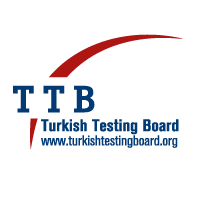To the Metaverse and Beyond: Why We Can’t Wait to Automate!
Keynote of TestIstanbul 2022
Although the idea of the metaverse began as fiction, it is likely that it will soon become a reality. Conceptually, the metaverse can be thought of as an online 3D cyberspace, connecting users across the globe in various aspects of their lives. Think of multiple computing devices and platforms connected together via the Internet, allowing each user’s avatar or character to navigate through a virtual space, and become immersed in different experiences everywhere from hangouts to sports games, bar mitzvahs, weddings, among others. It is predicted that extended reality (XR) technologies such as augmented reality (AR), virtual reality (VR), and brain computer interfaces (BCI) will be used to power metaverse development. However, the development, validation, and delivery of the metaverse-like experiences represents a grand engineering challenge. Join Tariq King as he discusses the engineering risks and quality concerns associated with metaverse development and shows you where elements of the metaverse are being implemented today. Tariq believes that testing and automation will play a key role in the success of the metaverse and will introduce you to promising directions and reasons why we can’t wait to automate the metaverse and beyond.
About Tariq King
Tariq King is the Chief Scientist at test.ai, where he leads research and development of their core platform for AI-driven testing. Tariq has over fifteen years’ experience in software engineering and testing and has formerly held positions as Head of Quality, Director of Quality Engineering, Manager of Software Engineering and Test Architect. Tariq holds Ph.D. and M.S. degrees in Computer Science from Florida International University, and a B.S. in Computer Science from Florida Tech. His areas of research are software testing, artificial intelligence, autonomic and cloud computing, model-driven engineering, and computer science education. He has published over 40 research articles in peer-reviewed IEEE and ACM journals, conferences, and workshops, and has been an international keynote speaker at leading software conferences in industry and academia. He is the co-founder of the Artificial Intelligence for Software Testing Association (AISTA) and has contributed multiple projects to the open-source community.


